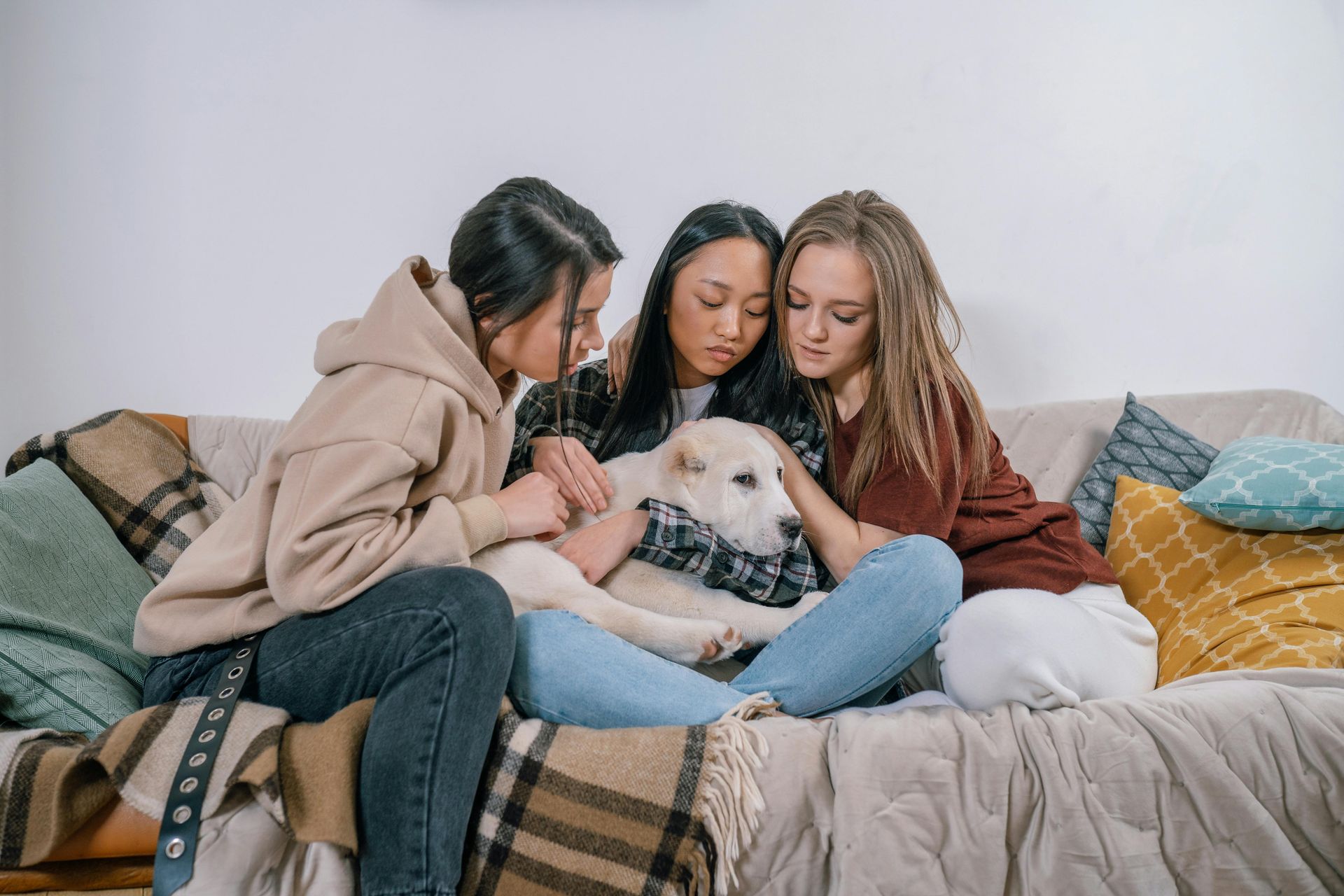Many parents struggle with helping children who have been diagnosed with Attention Deficit Hyperactivity Disorder (ADHD) to regulate their anxious behaviour, communicate their feelings and emotions, and to implement practical strategies for managing their hyperactivity. Medication can help to manage inattention, hyperactivity, and impulsive behaviour. Medication, however, is not a cure and it is often a daily struggle for parents to help their child feel regulated.
What is ADHD?
Attention deficit hyperactivity disorder, also known as ADHD, is a mental health disorder that is characterized by high levels of hyperactive and/or impulsive behaviours, as well as difficulties focusing attention. Common symptoms of ADHD include: being easily distracted, difficulty sitting still, trouble concentrating on tasks, forgetting to complete projects, or often interrupting others while they’re speaking. One in ten children between the ages of 5 and 17 will receive an ADHD diagnosis (Angel, 2019), making it one of the most common mental health disorders in children.
Are there alternatives to medications?
While medications like Ritalin and Adderall have been used to treat ADHD for years, recent research has lacked the ability to identify the efficacy of these medications as well as their short-term and long-term effects. It has been demonstrated through research that there are many novel ways, other than medication, to help children and parents cope with and manage the prominent symptoms of ADHD. By utilizing these alternative strategies, parents will have the opportunity to better help their children in learning how to regulate their behaviours and aid their children in developing a sense of self-regulation. Additionally, these alternative strategies help parents and children to connect with each other and work through a child’s mental health concerns in a collaborative manner.
Get Physical
Physical activity enables children to exercise motor skills and utilize their energy levels in a healthy way. Research has found that exercise can be a beneficial practice for children with ADHD as it allows them to release energy in a constructive way. Additionally, regularly scheduled physical activity can provide children with the opportunity to follow a routine and become more in tune with their body and it’s movements. Try scheduling some time for physical activity with your child that engages their whole body, such as soccer, frisbee, swimming, or yoga. The repetitive motions of these activities are not only soothing to children but will also help them expend energy that’s been stored inside their little bodies.
Meditation
One of the most effective tools for children with ADHD is to practice meditation. Harrison, Manocha, & Rubia (2004) suggest that Sahaja Yoga Meditation (SYM) can be a useful alternative treatment for children experiencing hyperactivity as it was found to help improve ADHD symptoms, self-esteem, and parent-child relationships. When a child meditates, it allows them to release stress in calm and meaningful ways. Other research has found that meditation increases gray matter in the prefrontal cortex, the part of the brain involved in focus, planning, and impulse control (Bhandari, 2020). Additionally, a study by UCLA (Zylowska et al., 2007) found that individuals who participated in an 8-week mindfulness meditation training program saw a decrease in ADHD symptoms, increased attention, as well as reductions in symptoms of depression and anxiety. Try setting aside some time to practice meditation with your child. Not only can this help improve your child’s symptoms but it will also allow time for you and your child to connect with each other.
Teaching Coping Strategies
It is common for children with ADHD to become easily frustrated, irritable, or angry and it can be difficult for parents to know how to respond in these moments. Many times, these impulsive reactions are a child’s attempt to communicate something that they are feeling. Therefore, helping your child learn some strategies to regulate these emotions can help decrease the occurrence of impulsive or irritable reactions and help them to release stress and tension in a healthy, productive way. Some of the coping strategies you can try with your child are breathing exercises, laughing, exercising, painting, yoga, going for a walk, and talking about their feelings. For example, when your child is feeling anxious or overwhelmed, help them feel connected to the present moment by practicing a grounding technique where you ask them to list 5 things they can see, 4 things they can feel, 3 things they can hear, 2 things they can smell, and 1 thing they can taste.
Consider trying out one of these three strategies with your child this week!
Written by: Mary Zamil, RP (Qualifying), M.A., B.A. (Hons)
Edited/Reviewed by: Chantal Legere, M. Psy. Candidate, B.A. (Hons)
References
Angel, T. (2019, June 13). Everything You Need to Know About ADHD. Retrieved from https://www.healthline.com/health/adhd#treatment
Bhandari, S. (2020, January 17). How Mindful Meditation and Yoga Can Help Treat ADHD. Retrieved from https://www.webmd.com/add-adhd/adhd-mindfulness-meditation-yoga#1
Harrison, L. J., Manocha, R., & Rubia, K. (2004) Sahaja yoga meditation as a family treatment programme for children with attention deficit-hyperactivity disorder. Clinical Child Psychology and Psychiatry, 9(4), 479-497.
Zylowska, L., Ackerman, D. L., Yang, M. H., Futrell, J. L., Horton, N. L., Hale, T. S., … Smalley, S. L. (2007). Mindfulness Meditation Training in Adults and Adolescents With ADHD: a feasibility study. Journal of Attention Disorders, 11(6), 737–746. doi: 10.1177/1087054707308502
Photo by Sharon McCutcheon from Pexels












